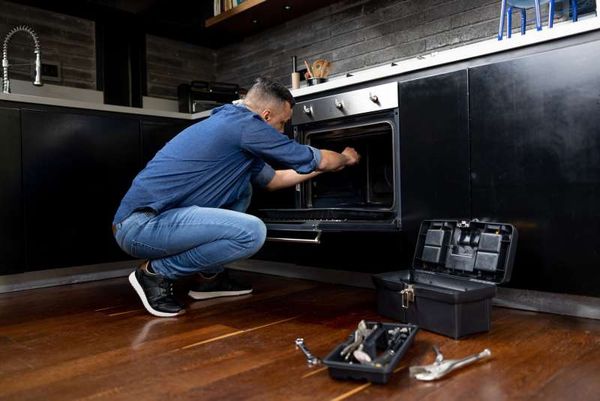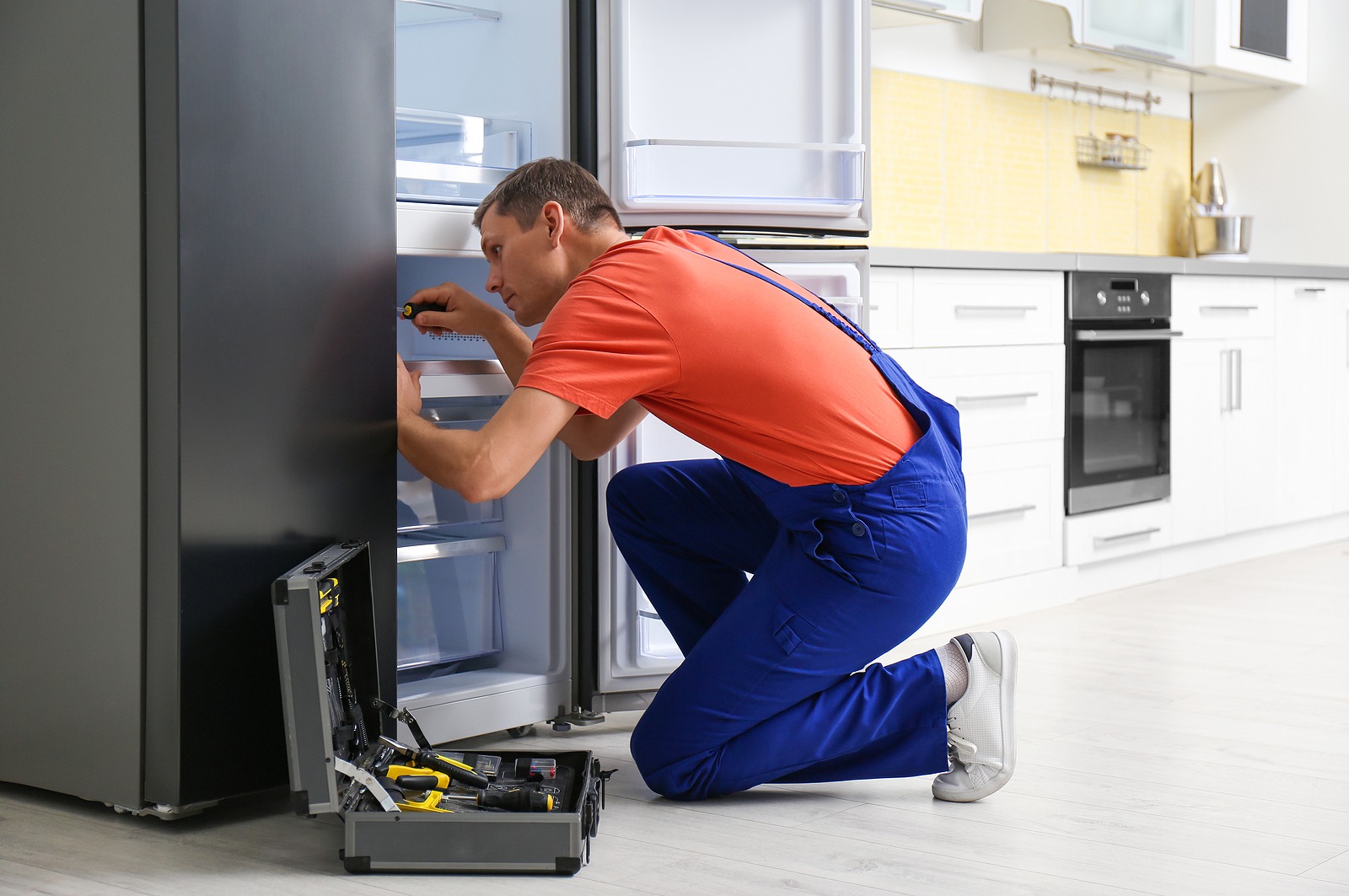The Ultimate Guide to Comprehending Device Repair Work at Home
When your refrigerator quits cooling down or your stove declines to warmth, it can really feel overwhelming. Comprehending home appliance fixing in the house can conserve you money and time. You'll find out to acknowledge signs and symptoms, make use of essential devices, and adhere to a methodical troubleshooting process. Before you start, there are critical safety and security preventative measures you require to take right into account. What are one of the most common troubles, and exactly how can you repair them? Let's explore the fundamentals.
Typical Appliance Troubles and Their Signs and symptoms
When your devices begin acting up, it's important to identify the signs beforehand. Overlooking them can bring about larger problems and costly repair work. If your fridge isn't cooling down correctly, you might discover warm areas or condensation developing. This could show a stopping working compressor or a blocked vent.Your dishwashing machine may reveal problems via dirty recipes or unusual sounds during cycles. If you hear grinding or clanking, it's time to investigate.A cleaning maker that won't rotate or drain pipes can leave you with soaked laundry, suggesting a blocked drain or a malfunctioning pump.Lastly, if your stove's temperature appears off or it takes forever to pre-heat, you may be dealing with a damaged thermostat. By remaining sharp to these symptoms, you can deal with problems before they rise right into major repair work.
Important Devices for Appliance Repair Work
When you're tackling appliance repair work at home, having the right devices is essential. Basic hand tools like screwdrivers and pliers will aid you take apart and deal with different home appliances, while electric testing gadgets assure you're functioning securely with circuitry. Let's discuss what you require to begin on your repair work journey.
Basic Hand Devices
Having the right devices is important for efficient appliance repair work in the house. Start with a trustworthy screwdriver collection, including both flathead and Phillips kinds, as screws are common in home appliance setting up. Pliers are likewise essential; they aid with gripping, turning, and reducing wires or tiny elements. A set of needle-nose pliers can reach difficult situations easily. You'll require a good adjustable wrench for tightening up or loosening nuts and screws. An utility blade comes in handy for cutting via packaging or insulation. Lastly, don't neglect a strong workbench or surface to securely organize your devices and parts. With these standard hand devices, you'll be well-prepared to take on most appliance repairs that come your method.
Electric Testing Instruments
Along with fundamental hand tools, electric screening gadgets play an important role in appliance repair. These devices aid you identify electric issues and warranty home appliances operate safely. A multimeter is crucial; it determines voltage, current, and resistance, allowing you to determine troubles quickly. A non-contact voltage tester is an additional must-have, letting you find real-time cords without making straight call, improving your safety. Clamp meters are fantastic for measuring existing flow in wires without detaching them, conserving you time and effort. Additionally, circuit testers can rapidly inspect if electrical outlets are operating appropriately. By utilizing these gadgets, you'll streamline your troubleshooting process and improve your repair work abilities, making appliance maintenance a lot simpler.
Step-by-Step Guide to Diagnosing Device Issues
When your device breaks down, it can be frustrating, however diagnosing the issue does not have to be frustrating. You'll discover to determine typical issues and apply efficient fixing methods. Let's walk with the actions to get your appliance back in working order.
Common Home Appliance Issues

Repairing Strategies Described

Repairing Significant Kitchen Area Appliances: A Closer Look
Have you ever before questioned exactly how to tackle typical issues with your kitchen area devices? Repairing significant kitchen home appliances like fridges, ovens, and dishwashing machines can be simpler than you think. Begin by determining the trouble-- whether it's a fridge not cooling down or an oven that will not heat. Commonly, a basic reset or inspecting the power resource can fix the issue.For fridges, tidy the condenser coils and check the door seals. If your oven's not heating, inspect the home heating element and thermostat. Dishwashing machines could just require a clean filter or a reset to obtain them back at work. Always unplug the appliance prior to diving into repair services to assure your safety.Don' t neglect to consult the individual guidebook for particular fixing suggestions associated with your model. With a little bit of persistence and the right devices, you can confidently tackle appliance repairs and save money while doing so!

Troubleshooting Laundry Equipments: Tips and Techniques
When your washing home appliances begin acting up, it can really feel frustrating, yet fixing them does not need to be a headache. Begin by checking the power supply. Verify the device is connected in and the electrical outlet is operating. Next off, evaluate the door or lid switch; a damaged switch can protect against the device from operating.For washers, if it's not rotating, look for out of balance lots. Rearranging the garments might address the concern. If your dryer isn't heating, clean the lint filter and examine the air vent for blockages.Listen for unusual noises; they can show a trouble. If your home appliance is leaking, inspect the tubes for fractures or loose connections. Document any kind of error codes presented on electronic screens, as they can lead you in identifying the concern. Lastly, seek advice from the individual handbook for particular troubleshooting pointers connected to your design.
Security Preventative Measures to Take Throughout Services
Prior to you begin any type of home appliance repair work, it's important to prioritize safety and security to protect against crashes or injuries. Disconnect the appliance or turn off the circuit more info breaker to guarantee no power reaches it while you work. Usage insulated devices to lessen the risk of electrical shock. Use safety goggles and handwear covers to secure yourself from sharp sides or debris (Washer dryer repair service Dependable Refrigeration).Make specific your work space is neat and well-lit, so you can see what you're doing. Maintain kids and family pets away from the location to prevent interruptions and possible risks. If you're managing gas devices, be added cautious; check for leakages prior to proceeding.Take your time, and don't hurry via fixings. If you really feel unclear regarding any step, it's much better to pause and research study than to think. Following these safety measures will certainly help develop a more secure environment for your DIY home appliance fixing project
When to Call a Professional for Help
How do you understand if it's time to call a professional for appliance repair work? If you've attempted standard troubleshooting without success, it's a clear indication. If your device still will not start or shows unusual noises after resetting it, do not be reluctant to seek expert help.When you notice leaks, smoke, or melting scents, prioritize safety and call a professional right away. These problems can lead to even more considerable damage or pose risks to your home.Also, if your device is under service warranty, speaking to a specialist is often the very best path. They can ensure that repair work will not nullify your guarantee, saving you money in the long run.Finally, if you're unsure or unpleasant with intricate fixings, it's important to leave it to the experts. Bear in mind, dealing with difficult concerns without the best knowledge can result in expensive mistakes. Depend on a professional when in uncertainty!
Often Asked Inquiries
Exactly How Can I Avoid Appliance Issues in the Future?
To stop home appliance troubles in the future, you must carry out normal upkeep, check for damage, clean filters, and avoid overloading. Remaining positive will assist prolong their life-span and keep them running efficiently.
What Are the A Lot Of Common DIY Device Repair Mistakes?
You may forget safety precautions, avoid repairing steps, or utilize incorrect devices when attempting do it yourself home appliance repair work. Rushing the procedure or disregarding manufacturer standards can result in even more considerable concerns and pricey blunders. Remain individual and informed!
How Do I Know if a Component Requirements Replacement?
You can inform if a part requires substitute by looking for uncommon noises, leakages, or irregular performance. If the appliance struggles to run appropriately or reveals visible damages, it's most likely time for a substitute.
Can I Make Use Of Generic Components for Device Repairs?
Yes, you can use common components for device repairs, yet ascertain they work - Dryer repair Oro Valley Dependable Refrigeration & Appliance Repair Service. Generic components may save you money, yet they can influence efficiency or longevity, so consider your alternatives meticulously before making a decision
What Service Warranties Cover Home Appliance Repairs?
Many appliance service warranties cover repair services for manufacturing problems, however they commonly omit damage from abuse. Examine your guarantee terms thoroughly, as some might require making use of licensed specialists and initial parts for protection to stay valid.